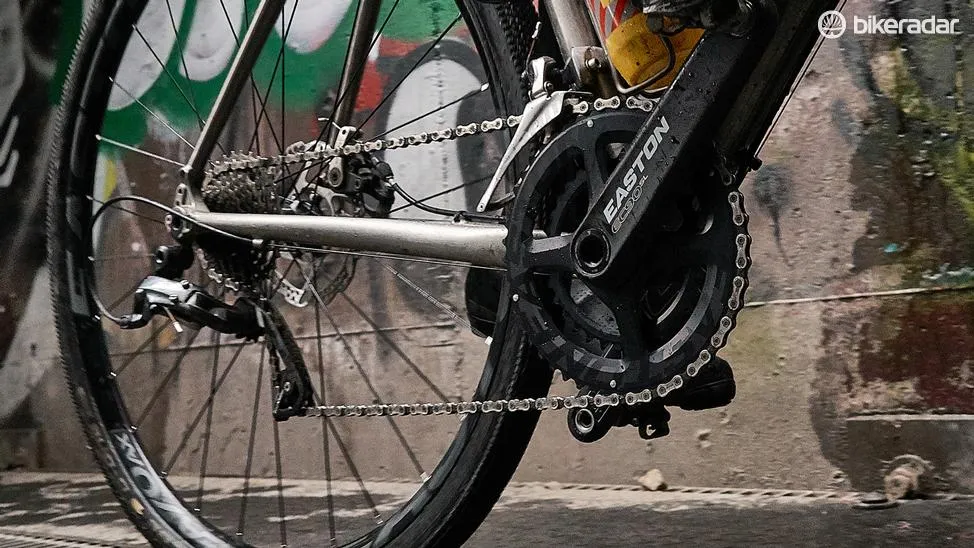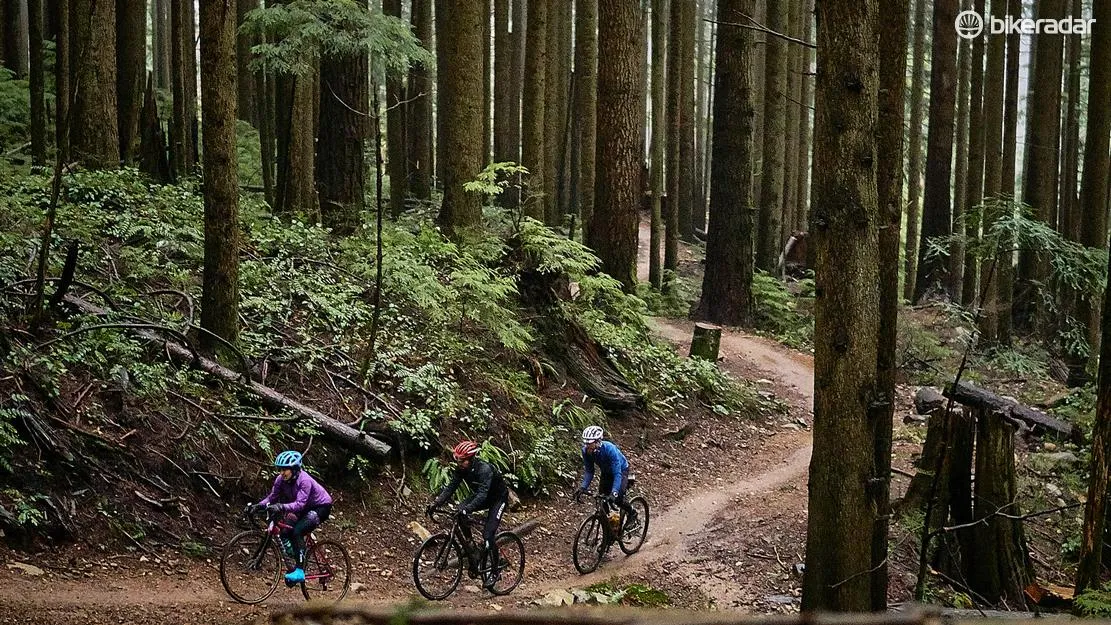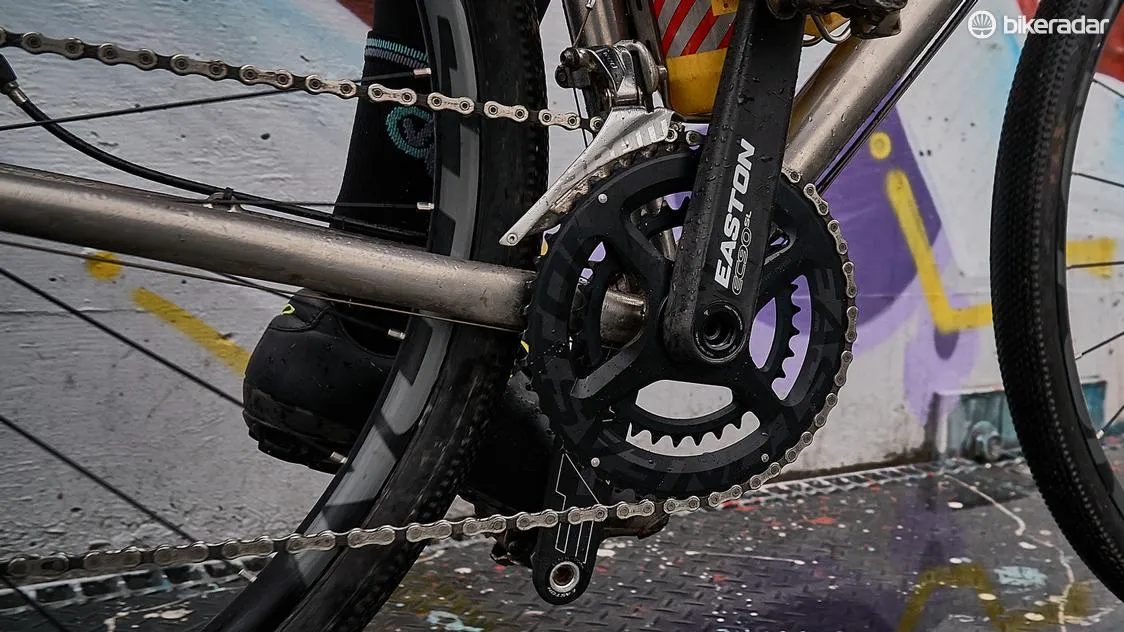There's no denying the simplicity and popularity of dedicated single chainring drivetrains. But there are tradeoffs with cadence and gear range. Easton is hoping to eliminate those downsides with its new gravel, adventure and cyclocross double chainrings.
Easton's double chainrings come in three sizes, each intended for different drop bar genres. According to Easton, 47/32t is for gravel, 46/36t is for cyclocross, and 46/30t is built for adventure riding.
Easton's Adventure Shifted 2x chainrings
Easton two-ring specifications
- Claimed weight: 47/32t 194g, 46/36t 192g, 46/30t 182g
- Claimed weight on Easton EC90 SL crankset: 540g (172.5mm 47/32 without bottom bracket)
- Chainline: 45mm
- Material: EA90 aluminum
- Price: $149.99 (UK and Australian pricing TBC)
- Available now
The timing of Easton's two-ring chainring release corresponds well with Shimano's recently unveiled clutch-equipped Ultegra RX rear derailleur.
Unlike SRAM's clutch-equipped rear changers, the UItegra RX rear derailleur is compatible with double chainrings up front.
Easton claims a 45g weight saving by using direct-mount rings, which eliminate the need for a chainring spider.
Correct gearing for gravel

Easton is touting a few reasons behind the unique 47/32 chainring size.
In a nutshell, Easton is claiming standard road bike gearing (53/39, 52/36 and 50/34t) — which was made for light, aero bikes with narrow tires riding on hard, smooth asphalt — is too tall for gravel bikes with their big tires, non-aero frames and rough, slow-riding surfaces.
Why a 47 and not the more common 48 chainring for a sub-compact big ring? Easton claims it found the only time gravel speeds exceeded 54kph / 33.5mph was on descents where pedaling would not make an impact.
For the low end, Easton found the 32t ring ideal, as it provides a 1:1 ratio when paired with the common 11-32t cassette.
Easton also touts increased shifting performance. With a 15-tooth spread between the rings versus the more common 16t. This lessens the cadence jump when shifting the front derailleur.
Additionally, Easton claims that with its 47-tooth ring it can optimize the shift ramps better than it could with a 48-tooth ring.
A short spread for cyclocross

The cyclocross-targeted chainrings are 46/36t. Easton states its sponsored 'cross riders requested this combo.
Easton claims the 10-tooth spread delivers quick front shifts and requires fewer rear shifts to minimize the gearing gaps.
According to Easton, having a 36-tooth small ring gives an easy gear for steep inclines and a natural dismount cadence for when riders have to hop off and run.
On the high end, the 46-tooth big ring has enough speed for pavement sections and finish-line sprints.
High and low for adventure

A lot is asked of adventure bikes. Often times they're loaded tip to tail with gear then ridden up, over and around some desolate and rugged terrain.
Easton believes 46/30t chainrings provide a suitable range with an ultra-low gear that's ideal for slogging up steep roads, yet a big enough gear on the opposite end to click off the miles or maximize downhills.
The 16-tooth spread is within front derailleur standards. Easton acknowledges there's a bit of shifting performance trade-off for the massive gear range.
